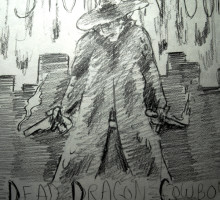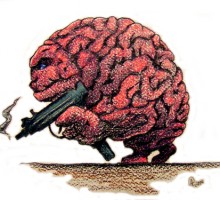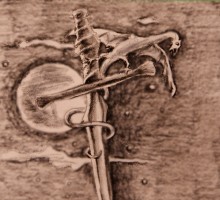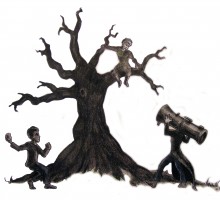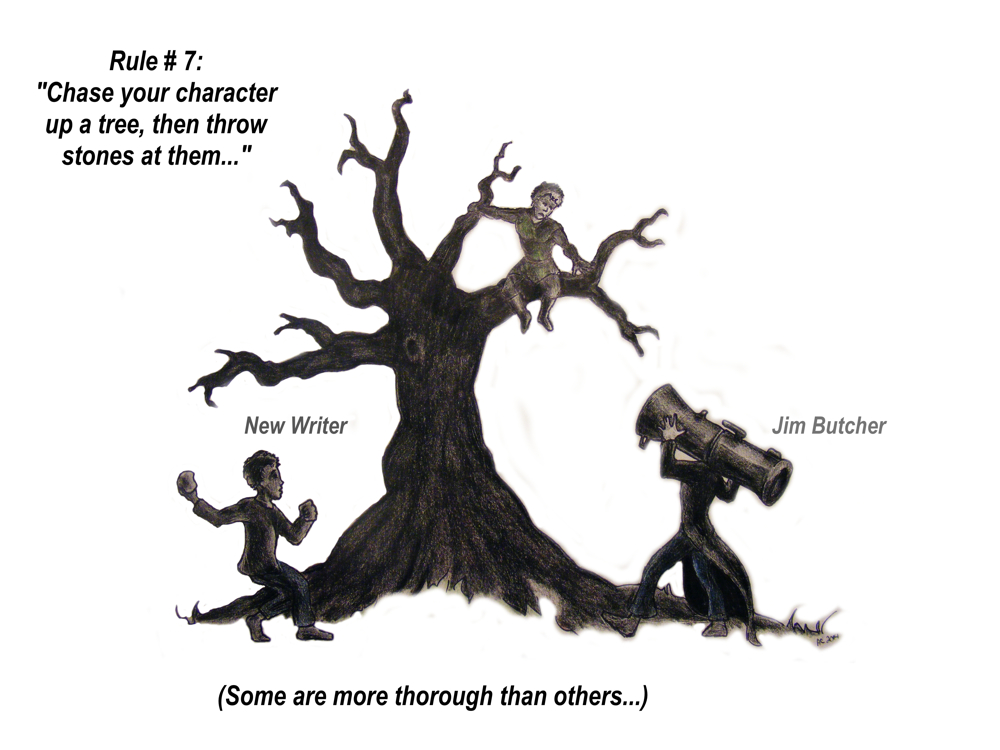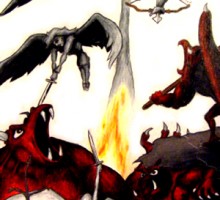I can tell you the Holy Trinity of Writing.
But it may not help. 😀
Because execution is very hard, page as I can tell you from experience. But I think it’s still useful to know what you’re aiming for. A challenging map may be hard to follow, treatment time-consuming and frustrating, this but it’s still better than no map at all!
So where did this idea originally come from, to share credit where due?
I was watching TV a year or so ago, and I saw an interview with writer/ director Christopher Nolan on making Inception (I’m reasonably sure this is where the idea came from, at least). In the interview, Mr. Nolan talked about the necessity, and challenge, of a screen-writer having to put themselves into three completely separate mind-sets, or roles, while making a movie. I believe it’s exactly the same in writing a book.
Those three roles are:
1. God of the Story
The plot structure has to be well-structured, for the right events to happen in the right order, to create desired impact of tension and emotion. Mr. Nolan appears, from online interviews, to do this more through plot diagrams than a written outline. (“What I do is draw a lot of diagrams — particularly if there’s sort of a structural complexity. I’ll kind of stick stuff all over my walls.”*) But whatever the tool or execution, the god-like control of events has to be there, for effective story unveiling.
2. The Character Experiencing Events.
To write well about and consistently about the story, to have people subjectively and emotionally relate to the characters on the page or screen, you have to make them react and behave consistently, relatably. To do that, you need to put your mind in their body and understand what it would be like to actually experience the events that you put into motion during #1.
3. Your Audience, Reading for the First Time.
It is difficult, but even though you acted as the God of your story, then the Character of your story, you then have to wipe all that out of your mind and experience the story as if you’ve never seen it before, to make sure that your audience has the experience that you’re intending them to. This seems to match the concept of putting a work in the ‘freezer’ for a few months after you’ve written it, or gaining a fresh set of eyes for a story that you wrote a year or two before, and couldn’t originally see its flaws. This happens to me all the time, in both art and writing. Right after you finish something, it’s extremely difficult to see it objectively. It is one of the reasons, if you do want to put something out into the world fast, that a Beta reader, who is interested in your genre, is so important. Not necessarily even another writer, but someone who can tell you what works or doesn’t for them.
So now you know the secret of success. Let me reiterate, it is by no means easy to execute well. So best of luck to both of us!
Adrian.
*Source:
_______________________________
I’m feeling healthy, for a change, work has slowed down, and the kids are only marginally all-consuming. I’m feeling creatively restless as a result, a bunch of projects on the go, and I haven’t done much with them the last couple of months. Including blog posts and art. So here is one blog topic that I really think is important and not often discussed, and if I can ever truly master this, I think it will take me really far (if I ever have time to create stuff!) 🙂 Spring is here, enjoy!
The artwork is a quick charcoal and pencil sketch, more of a concept piece, that I think would look pretty cool in watercolor. If I ever have time to do stuff. 🙂 Have I mentioned my challenges along this line?
